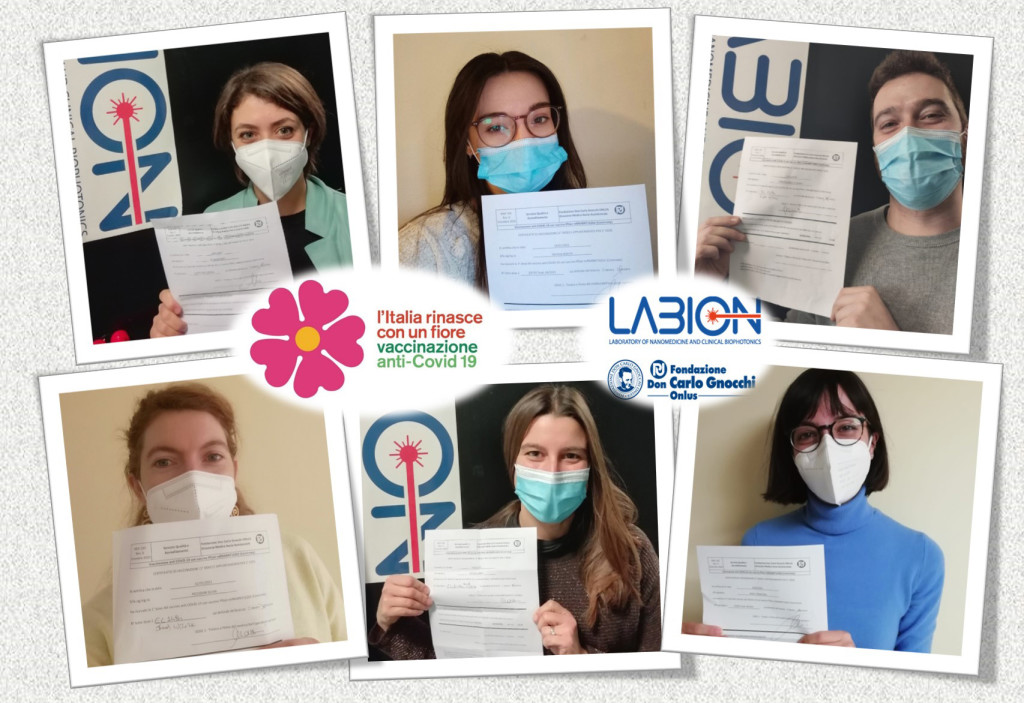2021 began with the vaccination campaign against SARS-CoV-2 and currently the European Medicines Agency and the AIFA have authorized two vaccines against COVID-19 that are based on liposomes.
Liposomes are biocompatible vesicles made up of lipids that are currently used for drug delivery.
The #NEVERMIND project has the main aim to develop innovative engineered nanoliposomes to transfer drugs to the brain. Here we would like to shift our focus from brain diseases to an actual example of the flexibility and importance of research on liposomes as drug delivery vehicles, trying to describe in simple words what these vaccines against SARS-CoV-2 contain, to provide .
The main components of liposome-based vaccines are: mRNA, lipids (fat), cholesterol, sucrose, salts and water. Lipids with cholesterol form vesicles, called liposomes, that have the purpose to transport the mRNA within the cell. The mRNA is a molecule that contains instructions to produce proteins. The mRNA present within the vaccine against SARS-CoV-2 encodes for the Spike protein of the virus, i.e. for the protein that is responsible, in case of infection, for the entry of the virus in our cells and thus responsible for the disease evolution. After vaccination, the cells of the vaccinated person start to synthesize the Spike protein, without having encountered the virus. In this way, the immune system is stimulated to produce specific antibodies against it and, if later those who have been vaccinated will come into contact with Sars-CoV-2, the immune system will be able to quickly recognize the virus and to fight it.
The vaccine does not contain the virus and cannot cause the disease.
We strongly encourage vaccination to stop the diffusion of the virus
Here you can find an animated video to better understand how the liposomes and vaccines work.
Frequently asked questions:
– What are the side effects?
Like any drug, vaccines can have side effects. The milder ones are pain and swelling in the injection site, fatigue, headache and fever. The most serious reactions are very rare and occur especially in people with particular allergies, therefore it is sufficient to declare them to the doctor so that he can assess whether or not a person is suitable for vaccination
– Does the vaccine modify DNA?
The mRNA released into the cell cannot enter the nucleus, so it does not interact with our DNA. In fact the cell is composed of the cytoplasm in which the nucleus is immersed and it is surrounded by a highly selective barrier. We are safe 😉
– Can we trust a new vaccine, which has been developed so quickly? Are we sure that it has been adequately tested?
None of the efficacy and safety steps of the vaccine have been skipped. The speed with which the vaccine has been obtained is due to the research on mRNA vaccines carried out for many years, the human and economic resources made available quickly as well as the rapid evaluation of regulatory agencies.





